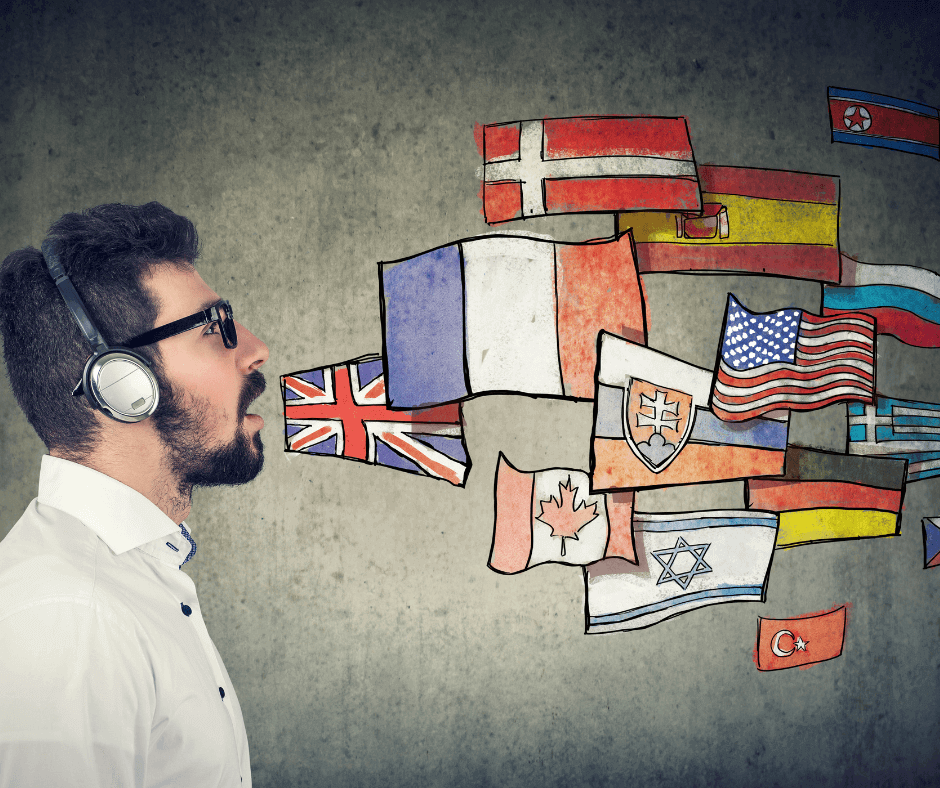English-speaking countries are nations where a significant portion of the population recognises English as an official or widely spoken language. English has become a global language, serving as a lingua franca in various fields such as business, diplomacy, education, and entertainment. This blog discovers the most English-speaking countries and the other languages they use.
1- The United States (272,485,000 English speakers)
The United States is one of the most English-speaking countries that embraces rich cultural diversity, evident in its languages. English prevails as the primary language, yet many second languages thrive among immigrant communities and indigenous populations.
Primary language:
English, the de facto national language of the United States, plays a vital role in government, education, and business.
It unifies diverse individuals, enabling their active involvement in American society.
Furthermore, English proficiency is often necessary for citizenship, employment, and academic achievements.
Second languages in the United States:
- Spanish is the most spoken second language in the US, with over 41 million first-language speakers and many bilingual individuals.
- Mandarin and Cantonese are the primary Chinese dialects spoken in the US.
- Tagalog, the national language of the Philippines, is spoken by Filipino Americans.
- French is spoken in the US due to historical ties, particularly in Louisiana, where Louisiana Creole French has its distinct dialect.
- German has a historical presence in the US, primarily in the Midwest. German-speaking communities were established during immigration waves in the 19th and early 20th centuries.
2- United Kingdom (65,509,000 English speakers)
The United Kingdom’s diverse linguistic landscape thrives with 14 distinct indigenous languages. Among them, English is the most widely spoken language, encompassing a significant portion of the population.
However, the linguistic richness extends beyond English, encompassing lesser-known languages like Cornish, predominantly used in Cornwall. Remarkably, only a modest number of individuals, approximately 500, possess fluency in Cornish.
Despite this, numerous indigenous languages persist and flourish throughout the UK, illustrating the country’s linguistic diversity.
3- Canada ( 22,450,000 English speakers)
Canada has significant linguistic diversity across its ten provinces, particularly in cities like Toronto and Vancouver, where languages from around the world thrive alongside English and French.
Surprisingly, Canada is home to over 70 Aboriginal languages in active use, while Mandarin ranks as the third most common mother tongue. Moreover, the number of Canadians proficient in languages other than English or French is steadily increasing.
4- Australia (19,728,000 English speakers)
English is the primary language in Australia. We can’t assume that every community member speaks it as their first language, as over 300 identified languages are spoken in Australia.
The 2021 Census, which enumerated a population of 25,422,788 people in Australia, revealed that 22.3% of Australians speak a language other than English at home.
Apart from English, the top languages spoken in Australia are:
5- South Africa (5,702,000 English speakers)
South Africa is one of the most English-speaking African countries. It is a multilingual country, showcasing its diverse linguistic and ethnic composition within Africa.
The democratic Constitution of South Africa officially recognises 11 languages, including:
- English.
- Afrikaans.
- Xhosa.
- Ndebele.
- Zulu.
- Tswana.
- Swati.
- Sotho.
- Southern Sotho.
- Venda.
- Tsonga.
In South Africa, English is not the first language. Still, it is one of Africa’s most English speaking countries.
Beyond these 11 official languages, South Africa also exhibits a variety of other tongues spoken within its borders, including:
- Hindi.
- Swahili.
- Tamil.
- Urdu.
- German.
- Dutch.
- Portuguese.
- Italian.
- Greek.
With a population of approximately 57 million, most South Africans are bilingual or multilingual, capable of speaking more than one language. It is common for individuals to use one language at home while utilising another for business purposes.
English-speaking African countries
English is the official language in many African countries, facilitating business expansion and opportunities.
English has maintained its prominence despite numerous indigenous languages due to British occupation.
As a result, both businessmen and tourists will find it easy to communicate in Africa, as a significant portion of the population is fluent in English.
Top English-speaking African countries include:
- Uganda
- South Africa
- Nigeria
- Kenya
- Zambia
- Botswana
- Zimbabwe
- Malawi
- Ghana
- Rwanda
- Gambia
key findings about global statistics for English-speaking countries
- The latest research indicates that out of 1,453 million English speakers, 1,080 million are non-native speakers, while 373 million are native speakers.
- Ethnologue reports that the United Kingdom is home to 56 million native English speakers.
- In 2021, the English language learning market generated a revenue of over 2.75 billion dollars.
- More than 75 different countries across the globe officially recognise English as an official language, according to Preply.
- The U.S. Census Bureau states that most people in the United States have English as their first language.
- English is one of the predominant languages online, with approximately 58% of the content available in English.
- Although English is recognised as the official language in Namibia, only 7% of the population speaks it.
- Over 50% of scientific and technical periodicals are published in English.
- Approximately 14 million individuals in South and Central America speak English fluently.
- Several African countries consider English their second language, with Nigeria having the highest number of English speakers (111 million), followed by Cameroon (9.8 million).
- Asian countries have relatively fewer native English speakers, with India leading the way with 265 million speakers.
- The Philippines has 50 million English speakers, while Bangladesh has 29 million speakers.
In conclusion, Across the globe, English is a global language, enabling communication and opportunities in diverse fields and regions, and here comes the effective role of a translation services company in Dubai and other countries. English-speaking countries exhibit linguistic diversity and multilingualism, reflecting their cultural richness. These nations embrace English as a primary or official language while also fostering the use of various second languages.
